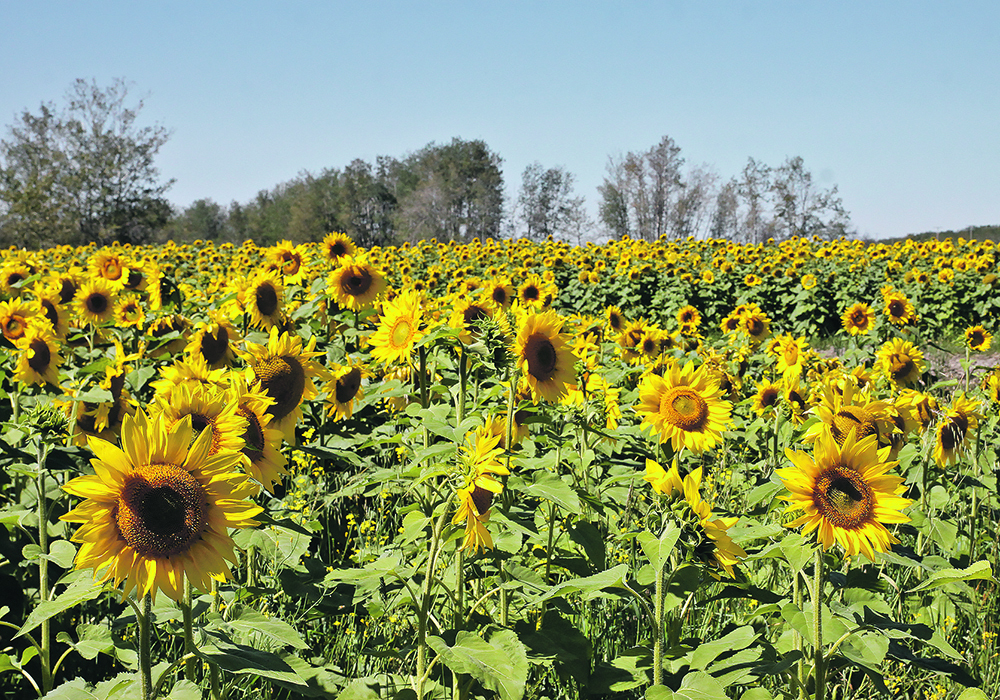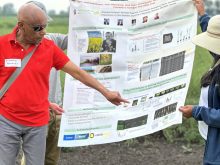Man. Crop Alliance asked consulting company to evaluate research capacity in the province and the challenges it faces
WINNIPEG — Crop research in Manitoba can be a challenge.
The province has some crops, such as sunflowers, which aren’t grown in other parts of Canada.
Plus, Manitoba has unique growing regions such as the Red River Valley, which is hotter and wetter than the rest of the Prairies.
Read Also

U.S. government investigates high input costs
The USDA and DOJ are investigating high input costs, but nothing is happening in Canada.
Finding researchers to study sunflowers, corn and some other crops grown in Manitoba can be difficult, which is why the Manitoba Crop Alliance (MCA) hired a consultant to evaluate crop research capacity in the province.
“We don’t want to have really important research questions coming to us from the farming community that (scientists) in Manitoba can’t answer because of capacity (issues),” said Katherine Stanley, MCA research program manager for special crops.
The alliance represents growers of corn, wheat, barley, winter wheat, flax and sunflowers in the province. It collects check-off dollars on those crops, but spending the checkoff for certain crops is complicated.
“Specifically, corn, sunflowers and flax — we struggle to find any kind of contractor or institution that can work on those special crops in the province,” MCA chief operating officer Darcelle Graham said in 2023.
“We collect this checkoff. We want to invest in the areas of research we need to so (farmers) get a return on their investment.”
In 2023 the MCA commissioned Backswath Management to study the issue so that it could understand what’s going on with crop research in Manitoba.
The consultancy identified a list of research roadblocks, including:
- human resources
- program funding
- equipment and infrastructure
The human resource issue is a given.
Most industries in Western Canada cannot find enough employees, especially agriculture and agri-food.
In the case of crop research in Manitoba, there’s a shortfall of technicians, research associates and others who work in the field and in the lab.
“One of the things highlighted … was recruiting and retaining support staff — making sure graduate students are staying in the province, either working as research associates, post docs or in technical support,” Stanley said.
Keeping skilled people in the province is not an easy task. There is high demand for agricultural scientists, says the U.S. Bureau of Labour Statistics.
“Overall employment of agricultural and food scientists is projected to grow six per cent from 2022 to 2032, faster than the average for all occupations,” the bureau says.
“About 3,000 openings for agricultural and food scientists are projected each year, on average, over the decade. Many of those openings are expected to result from the need to replace workers”
Manitoba will need to compete for those skilled workers to prevent ag technicians and crop researchers from moving to Ontario, Indiana or California.
A big part of that competition is compensation.
Places that hire ag researchers — universities, colleges and non-profits — may need to increase wages to compete with out-of-province opportunities and to compete with private industry within the province.
The MCA report also identified funding and how it is structured as a hindrance to crop research in the province.
“Many funding programs are limited to a three- to five-year research project,” the MCA says on its website.
“As research questions become more complex, the need to fund longer-term studies is critical to adequately address these challenges.”
The short-term funding also makes it difficult to retain crop research workers.
The cash for a three-year project includes the salaries of employees who are involved in the project. When that project ends or the funding dries up, that employee could be out of a job.
MCA staff will use the research capacity report to dig deeper into this issue and hopefully identify some solutions.
“We’re going to carry out discussions with private and public partners … and really have those direct conversations about what are the bottlenecks, what are the limitations to (doing) research in this specific area?” Stanley said.
“(We want) to make sure we are providing farmers of Manitoba with relevant data and information.”
















